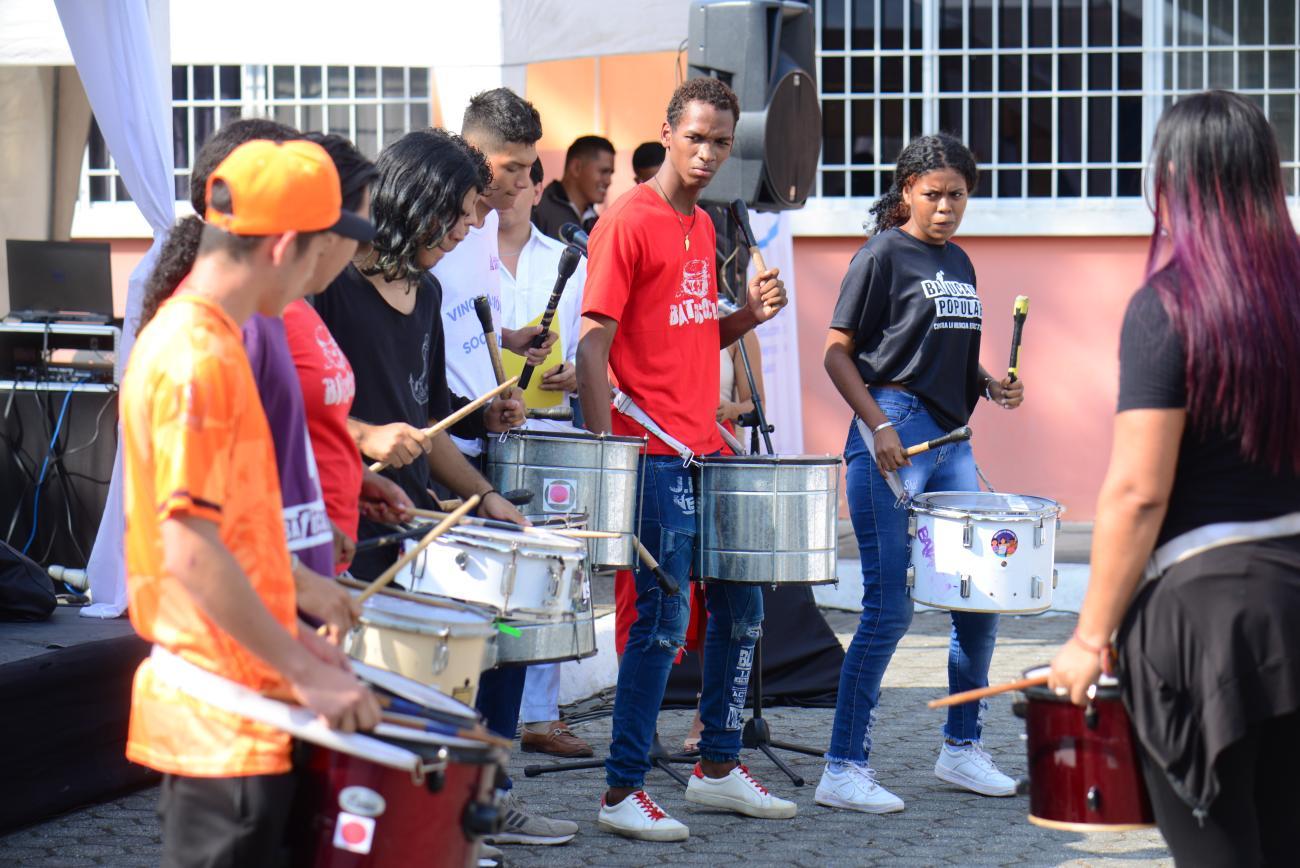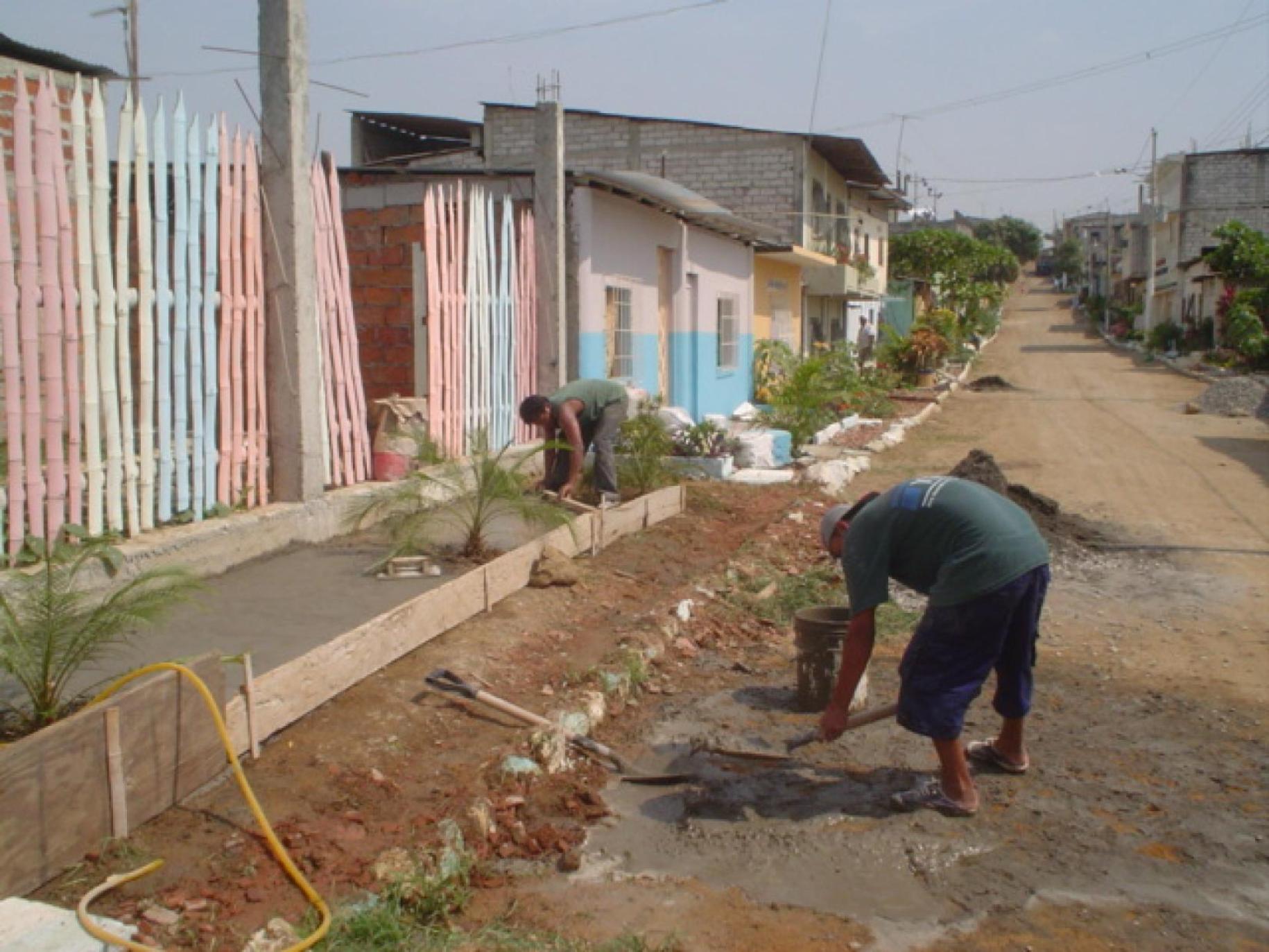Ecuador copes with rising violence and organized crime

"An island of peace in a sea of chaos" is how the ZUMAR Multipurpose Center was described to me. Located in Bastión Popular, a neighborhood in Guayaquil, Ecuador’s largest city and economic capital, the center aims to improve the quality of life of the community, especially children, women and young people.
Bastión Popular has high rates of poverty, inadequate housing, overcrowding, and lack of access to adequate water and sanitation systems. At ZUMAR, the community can access health services, engage in sports and cultural activities, attend trainings, and acquire livelihood skills, all free of charge.
Driven by drug trafficking and organized crime, Ecuador, a formerly peaceful country, has been transformed into the most violent in Latin America. Crime affects all sectors of society. Businesses are being robbed or extorted to pay for vaccines in exchange for protection, hospitals have been attacked and children are dropping out of school because they are no longer considered safe spaces.
Strengthening society's social fabric and community structures
My visit to ZUMAR coincided with a new UN project funded by the Peacebuilding Fund (PBF) to try to combat this scourge. The PBF project seeks to strengthen institutional and civil society capacities for the prevention and management of social conflict and peace building. It is being implemented by three UN agencies — the UN Development Programme (UNDP), the UN Office on Drugs and Crime (UNODC), and the UN Entity for Gender Equality and the Empowerment of Women (UN Women) — since the beginning of 2023 and has already achieved some promising results.
For example, strengthening the capacities of civil society organizations to better exercise their role as facilitators of dialogue — an important way to prevent social tensions.
The importance of strengthening society's social fabric and community structures is emphasized to me by Fernando Bastias Robayo, a member of Ecuador’s Permanent Committee for the Defense of Human Rights. He tells me that criminal organizations have progressively penetrated local communities and displaced state institutions, and now control territory and even institutions such as prisons.

Young people are especially at risk, particularly children as young as 12 who are recruited or forced to join gangs and assigned tasks ranging from serving as vigilantes or "bells," selling drugs in local markets, collecting extortion money, or even committing violent crimes.
The PBF project has recognized the importance of working with youth as key actors in peace building. For example, UN agencies have supported the Municipal Public Enterprise for Social Action and Education in establishing peace spaces to develop youth capacities in peaceful conflict management and prevent the forced recruitment of youth. They have also implemented the "Juega Vive" initiative, which aims to promote sports to prevent crime and promote resilience among at-risk youth. Workshops were also held with youth and community leaders were also held to build a strategy to interrupt hate speech and discrimination, and the UN supported the first Youth Meeting for Peace and Security, which drew more than 100 representatives from adolescent and youth organizations.
Increase in crime and violence against women and girls
Another group greatly affected by the increase in crime and violence are women and girls. According to data from the Feminist Alliance for the Mapping of Femicides in Ecuador, at the national level, six out of 10 women have suffered some type of violence, and women and girls are increasingly at risk of being recruited by criminal groups, many of them to be used as sex slaves.
Since 2020, together with the European Union (EU), three UN agencies (the UN Population Fund (UNFPA,) UN Women, and UNDP) have been working through Spotlight Initiative to strengthen gender-based violence policy frameworks, boost capacities of public institutions and civil society, improve the availability of data and services for survivors of gender-based violence, and combat harmful gender stereotypes and sexist language.
The success of Spotlight Initiative has been widely recognized, and a second phase of the program will be launched in 2024 with continued support from the EU and new partners.
To fight organized crime and drugs, a comprehensive strategy is needed that includes strengthened public policies and institutions for violence prevention and protection of human rights, as well as a significant investment in social programs to address its underlying factors. And it must be a society-wide effort, including social actors and international cooperation, such as the UN, that reaffirms a mutual commitment to working together.
This blog was written by UN Resident Coordinator in Ecuador Lena Savelli. To learn more about the UN in Ecuador's work, visit ecuador.un.org.













